The International Baccalaureate’s Diploma Programme (DP), created in 1968, is a demanding pre-university course of study that leads to external examinations; it is designed for highly motivated students aged 16 to 19. This programme has earned a reputation for rigorous assessment, giving IB Diploma holders access to the world’s leading universities.
The IBDP is a comprehensive two-year international curriculum that generally allows students to fulfil the requirements of their national or state education systems. The Diploma Programme incorporates the best elements of national systems, without being based on any one. Internationally mobile students are able to transfer from one IB World School to another, while students who remain closer to home benefit from a highly respected international curriculum. The Programme was born of efforts to establish a common curriculum and valid university entry credentials for students moving from one country to another.
Raffles World Academy is an authorized IB World School and a member of the Middle East International Baccalaureate Association (MEIBA). Currently over 2000 schools, in 130 countries, offer the IB Diploma Programme. The IB is headquartered in The Hague, but also has offices in Washington DC, Singapore and Cardiff.
It would be unfair to say that the IB has only helped me survive college because, in reality, it has done much more; it has empowered me not only to survive but to excel at college by arming me with skills such as critical thinking, interpersonal communication and, most importantly, time management. I have really come to appreciate the effectiveness of the IBDP as well as the expertise of the RWA faculty, especially when I see some of my college peers, who have done curricula other than the DP, struggle with tasks that any IBDP alumnus would consider basic and straight-forward.
Janan Mostajabi, Class of 2017, Raffles World Academy
Currently studying Psychology and Film at UC Berkeley

The International Baccalaureate’s Diploma Programme (DP), created in 1968, is a demanding pre-university course of study that leads to external examinations; it is designed for highly motivated students aged 16 to 19. The programme has earned a reputation for rigorous assessment, giving IB Diploma holders access to the world’s leading universities. The IB has shown over the course of almost 50 years that IB Diploma Programme students are well prepared for university work.
The Diploma Programme’s grading system is criterion based: each student’s performance is measured against well-defined levels of achievement consistent from one examination session to the next. Grades reflect attainment of knowledge and skills relative to set standards that are applied equally to all schools. Top grades are not, for example, awarded to a certain percentage of students.
The programme is a comprehensive two-year international curriculum that generally allows students to fulfil the requirements of their national or state education systems. The Diploma Programme incorporates the best elements of national systems, without being based on any one. Internationally mobile students are able to transfer from one IB World School to another, while students who remain closer to home benefit from a highly respected international curriculum. The programme was born of efforts to establish a common curriculum and valid university entry credentials for students moving from one country to another. International educators were motivated by practical considerations but also by an idealistic vision: students should share an academic experience that would emphasize critical thinking, intercultural understanding and exposure to a variety of points of view.
Today, more than half the students world-wide opting for the Diploma Programme come from state or national systems rather than from international schools. The idealism has remained unchanged, however.
After I finished my IBDP at RWA, I left for Canada to pursue a double major in Business and Financial Math at Wilfrid Laurier University. I intend to graduate in the spring of 2020. I've had the chance to work with banks and investment funds during my time here in Canada and am currently working towards securing my CFA designation. Missing the chill IB life
Pakshan Cooper, Class of 2015, Raffles World Academy, Dubai
Raffles World Academy is an authorized IB World School and a member of the Middle East International Baccalaureate Association (MEIBA). Currently over 2000 schools, in 130 countries, offer the IB Diploma Programme. The IB is headquartered in The Hague, but also has offices in Washington DC, Singapore and Cardiff.
University Recognition
International Baccalaureate diplomas and certificates are accepted around the world as a qualification for university entrance. Since 1969, IB students have entered over 600 universities in Europe, the Americas, Asia, Africa, and Australia, and the list of institutions accepting IB students, which includes the most prestigious institutions throughout the world, is growing every year.
Many university admissions personnel have stated that they prefer IBDP students because the course develops a variety of skills needed for university study, and successful IBDP graduates have already demonstrated the ability to work at this level. In addition, IBDP students, having studied a range of subjects, can make a more informed choice of undergraduate programmes. Many employers too, recognise the value of analytical skills, flexibility and adaptability, all of which are stressed in the IB programme. Thus, the IBDP offers not only preparation for university but also for life after university.
As the IBDP is a pre-university course, each student must design a course suited to his or her needs and interests. All students preparing to join the IBDP therefore must discuss their possible options with the IBDP Coordinator, as well as with their parents, considering their future university plans. It should be noted that many universities have specific requirements in terms of courses taken and grades achieved, and some may require entrance examinations.
Higher Level (HL) courses are considered equivalent to British ‘A’ Level courses, and to American Advanced Placement (AP) or ‘Honours’ courses. IB Higher Level courses are considered for advanced standing or credit at many Canadian and US universities. IB Diploma students with excellent HL subject scores may be offered a year’s credit or advanced placement in Canadian or US universities or US-type universities overseas.
IB Courses without the Diploma are accepted in many countries, including the US and Canada, and are accepted for entry by UK foundation programmes and may be accepted by less competitive UK universities.
Name of School : Raffles world Academy, Umm Suqeium
| IB Diploma Program | 2023 | 2022 | 2021 | 2020 | 2019 |
|---|---|---|---|---|---|
Number of candidates registered in the session | 63 | 69 | 74 | 91 | 54 |
Number of diploma and retake candidates registered | 47 | 54 | 55 | 63 | 42 |
Number of subject entries in the session | 448 | 492 | 504 | 634 | 385 |
Number of candidates who passed the diploma | 46 | 51 | 55 | 62 | 42 |
Average points obtained by candidates who passed the diploma | 32 | 32 | 35 | 35 | 33 |
% of candidates who achieved 40+ points | 3/47 (6%) | 5/54 (9.3%) | 16/55 (29.1%) | 9/63 (14.3%) | 4/42 (9.5%) |
| % of candidates who achieved 35+ points | 17/47 (36%) | 17/54 (31.5%) | 32/55 (58.2%) | 36/63 (57.1%) | 18/42 (42.9%) |
| % of candidates who achieved 30+ points | 28/47 (60%) | 39/54 (72.2%) | 45/55 (81.8%) | 59/63 (93.7%) | 33/42 (78.6%) |
Highest diploma points awarded to a candidate | 41 | 43 | 44 | 43 | 42 |
Diploma Pass rate | 98 | 98 | 100 | 98 | 100 |
Creativity, Activity, Service (CAS) is an essential component of the IB Diploma Programme that every student must complete as part of their DP in Grades 11 and 12.
The three strands which are often interwoven with particular activities are:
- Creativity: Expressing oneself through the arts or any experiences that involve creative thinking
- Activity: Physical exertion that contributes a healthy lifestyle and complementing academic work when possible.
- Service: Unpaid and voluntary exchanges that have learning benefits to the students.
Studied throughout the Diploma Programme, CAS involves students in a range of exciting and challenging activities alongside their academic studies. It enables students to enhance their personal and interpersonal development by learning through experience. It provides opportunities for self-determination and collaboration with others, fostering a sense of accomplishment and enjoyment from their work. At the same time, CAS is an important counterbalance to the academic pressures of DP.
Here at Raffles World Academy, we have a thriving CAS programme that gives students the opportunity to challenge themselves in all three strands of the programme in both local and international contexts. Students are given ownership and responsibility in their CAS experiences and are allowed to positively impact other areas of the school such as assisting in the primary school, the arts faculty and the sports field. Students often independently research, plan and execute hugely successful CAS projects that are visible throughout the school. Most recently, a group of students designed and distributed hoodies for various school sporting teams which are proudly displayed on athletes throughout the school.
We also organise one international CAS trip each year in which students visit a local community to volunteer and contribute to ongoing sustainable projects. This is often a highlight of the CAS programme that gives students the opportunity to engage with issues of global significance in a hands-on way. Previous successful CAS trips include Sri Lanka, Nepal and Laos. The work students complete on these trips are part of ongoing projects which are continued after they
leave each community.
This direct impact on issues of global significance is testament to our international mindset and successful CAS programme here at Raffles World Academy.
Kindly choose one subject from each group. IBDP students should have three HL subjects and three SL subjects. IB Courses students may choose any from SL or HL subjects.
| GROUP | SUBJECT |
|---|---|
| GROUP 1 | ENGLISH A LANGUAGE/LITERATURE SL |
| ENGLISH A LANGUAGE/LITERATURE HL | |
| ENGLISH B SL | |
| ENGLISH B HL | |
| SELF TAUGHT LANGUAGE A ** | |
| GROUP 2 | ARABIC B SL (Compulsory for Arab nationals) |
| ARABIC B HL (Compulsory for Arab nationals) | |
| ARABIC AB INITIO SL (For non-Arabs only) | |
| ENGLISH B SL | |
| ENGLISH B HL | |
| FRENCH B SL | |
| FRENCH B HL | |
| FRENCH AB INITIO SL | |
| SPANISH B SL | |
| SPANISH B HL | |
| SPANISH AB INITIO SL | |
| SELF TAUGHT LANGUAGE A ** | |
| GROUP 3 | BUSINESS AND MANAGEMENT SL |
| BUSINESS AND MANAGEMENT HL | |
| ECONOMICS SL | |
| ECONOMICS HL | |
| GEOGRAPHY SL | |
| GEOGRAPHY HL | |
| GLOBAL POLITICS SL | |
| GLOBAL POLITICS HL | |
| HISTORY SL | |
| HISTORY HL | |
| PSYCHOLOGY SL | |
| PSYCHOLOGY HL | |
| GROUP 4 | BIOLOGY SL |
| BIOLOGY HL | |
| CHEMISTRY SL | |
| CHEMISTRY HL | |
| COMPUTER SCIENCE SL | |
| COMPUTER SCIENCE HL | |
| ENVIRONMENTAL SYSTEMS AND SOCIETIES SL | |
| PHYSICS SL | |
| PHYSICS HL | |
| SPORTS, EXERCISE AND HEALTH SCIENCE SL | |
| SPORTS, EXERCISE AND HEALTH SCIENCE HL | |
| GROUP 5 | MATHEMATICS: ANALYSIS AND APPROACHES SL |
| MATHEMATICS: ANALYSIS AND APPROACHES HL | |
| MATHEMATICS: APPLICATIONS AND INTERPRETATIONS SL | |
| GROUP 6 | BIOLOGY SL |
| BIOLOGY HL | |
| BUSINESS AND MANAGEMENT SL | |
| BUSINESS AND MANAGEMENT HL | |
| CHEMISTRY SL | |
| CHEMISTRY HL | |
| GEOGRAPHY SL | |
| GEOGRAPHY HL | |
| PHYSICS SL | |
| PHYSICS HL | |
| PSYCHOLOGY SL | |
| PSYCHOLOGY HL | |
| THEATRE SL | |
| THEATRE HL | |
| VISUAL ARTS SL | |
| VISUAL ARTS HL | |
| Notice to candidates | Subject options offered in 2021-22 will depend on student intake in each case. Please note that any courses with insufficient student intake will not be offered in September 2021. ** Consultation with the DP Coordinator is required before this option is confirmed. |
Kindly choose one subject from each group. IBDP students should have three HL subjects and three SL subjects. IB Courses students may choose any from SL or HL subjects.
| GROUP | SUBJECT |
|---|---|
| GROUP 1 | ENGLISH A LANGUAGE/LITERATURE SL |
| ENGLISH A LANGUAGE/LITERATURE HL | |
| SELF TAUGHT LANGUAGE A ** | |
| GROUP 2 | ARABIC B SL (Compulsory for Arab nationals) |
| ARABIC B HL (Compulsory for Arab nationals) | |
| ENGLISH B SL | |
| ENGLISH B HL | |
| FRENCH AB INITIO SL | |
| SPANISH B SL | |
| SPANISH B HL | |
| SPANISH AB INITIO SL | |
| SELF TAUGHT LANGUAGE A ** | |
| GROUP 3 | BUSINESS AND MANAGEMENT SL |
| BUSINESS AND MANAGEMENT HL | |
| ECONOMICS SL | |
| ECONOMICS HL | |
| GEOGRAPHY SL | |
| GEOGRAPHY HL | |
| PSYCHOLOGY SL | |
| PSYCHOLOGY HL | |
| GROUP 4 | BIOLOGY SL |
| BIOLOGY HL | |
| CHEMISTRY SL | |
| CHEMISTRY HL | |
| COMPUTER SCIENCE SL | |
| COMPUTER SCIENCE HL | |
| ENVIRONMENTAL SYSTEMS AND SOCIETIES SL | |
| PHYSICS HL | |
| PHYSICS SL | |
| SPORTS, EXERCISE AND HEALTH SCIENCE SL | |
| SPORTS, EXERCISE AND HEALTH SCIENCE HL | |
| GROUP 5 | MATHEMATICS: ANALYSIS AND APPROACHES SL |
| MATHEMATICS: ANALYSIS AND APPROACHES HL | |
| MATHEMATICS: APPLICATIONS AND INTERPRETATIONS SL | |
| GROUP 6 | BIOLOGY SL |
| BIOLOGY HL | |
| BUSINESS AND MANAGEMENT SL | |
| BUSINESS AND MANAGEMENT HL | |
| GLOBAL POLITICS HL | |
| GLOBAL POLITICS SL | |
| PHYSICS SL | |
| PHYSICS HL | |
| PSYCHOLOGY SL | |
| PSYCHOLOGY HL | |
| THEATRE SL | |
| THEATRE HL | |
| VISUAL ARTS SL | |
| VISUAL ARTS HL | |
| Notice to candidates | Subject options offered in 2021-22 will depend on student intake in each case. Please note that any courses with insufficient student intake will not be offered in September 2021. ** Consultation with the DP Coordinator is required before this option is confirmed. |




